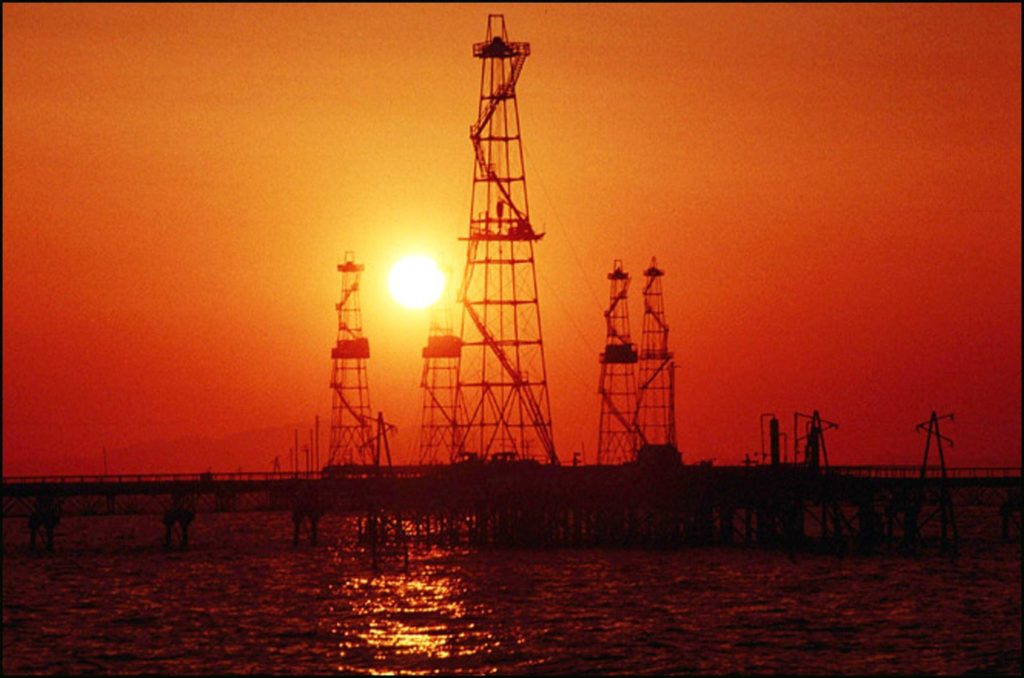BAKU
By Lada Yevgrashina
Kazakhstan is mulling options of re-routing part of its transit oil from Russia and is holding talks with Azerbaijan on a possible transfer of crude to the Baku-Tbilisi-Ceyhan pipeline (BTC) amid international sanctions against Moscow due to its invasion of Ukraine.
Since Kremlin leader Vladimir Putin launched a full-scale military operation into the neighbouring country nearly three weeks ago, the international community has been coordinating sanctions designed to inflict maximum pain on the Russian economy.
The punitive measures are wide-ranging: they target Russia’s officials, businessmen, as well as the country’s banking, technology and key industrial sectors. Among the toughest measures is the exclusion of several Russian banks from the SWIFT payment system, which means they won’t be any longer able to transact internationally.
Kazakhstan uses the Caspian Pipeline Consortium (CPC) pipeline for the transit of its oil to international markets via Russia. The country has not faced any problems with oil shipments so far.
“There are no international barriers or sanctions against Kazakh oil, which is in transit through the Russian Federation, and the situation is constantly monitored,” Bolat Akchulakov, Kazakhstan’s energy minister, told reporters.
“A decrease in the export of Kazakh oil is not planned yet … It is clear that various options are being considered, but so far there are no sanctions, and therefore we are working normally through the Caspian Pipeline Consortium and the Atyrau-Samara line,” he added.
Meanwhile, experts believe that Kazakhstan is seriously concerned about signals that international oil traders are refusing to buy CPC Blend oil as it passes through Russia, which gets transit fees. Shipments are operated by a major Russian oil and gas company, Transneft. A former KGB colleague of President Putin’s, Nikolay Tokarev, 71, who is chief executive of Transneft, is also sanctioned.
European Union states are set to adopt new sanctions against Russia’s oil majors Rosneft, Transneft and Gazprom Neft, but will continue to buy oil from them, an EU source told Reuters on Monday.
The three companies are already subject to EU restrictions on loans and debt financing. Under the new package, they will also face an investment ban, which is expected to freeze their funding from sources in the EU in new production and exploration projects in all fossil fuels.
The U.S. Treasury said that sanctions would not apply to transit oil. However, oil traders are cautiously purchasing CPC Blend day by day, which is why it is traded at a significant discount on European exchanges, while oil that goes through the BTC pipeline is sold on the European markets with a premium of at least $2-2.5 per barrel.
Azerbaijan’s BTC pipeline is seen by Kazakhstan as a transit option and Kazakh officials have already discussed the issue of oil transportation through Azerbaijan. Azerbaijan exports oil in three directions: through the Russian port of Novorossiisk (Urals blend), through the Georgian Black Sea port of Supsa (Azeri Light) and through the Mediterranean Turkish port of Ceyhan (Azeri Light, which comes with a premium to Brent).
The BTC has a capacity of 1 million barrels of oil per day (bpd) and it currently ships an average of 460,000 bpd of Azeri oil and 110,000 bpd of transit oil from Kazakhstan, Turkmenistan and Russia. It means that the pipeline has free capacities for additional oil volumes from Kazakhstan.
“We have not yet talked about specific additional volumes of oil from Kazakhstan, we have discussed logistics issues, taking into account the interest of Kazakhstan regarding the immediate prospect of increasing the use of the BTC,” an informed source the Tribune.
Both Kazakhstan and Azerbaijan are members of OPEC+, bringing together the Organisation of the Petroleum Exporting Countries (OPEC) and allied producers.
In February, Kazakhstan said it had planned to produce 87.5 million tonnes of oil this year, up from 85.7 million tonnes in 2021. Oil exports exceeded 67.5 million tonnes last year.
Last year, the country drafted a plan to increase oil production to 104.2 million tonnes by 2030 through a number of projects. Among them is a future expansion project at the Tengiz field, thanks to which oil production will increase by 12 million tonnes per year from 2024.

